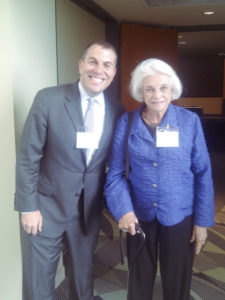Warren Buffett, Writing Trainer?
Fretting over Plain English? Just pick up one of Warren Buffett’s annual reports for Berkshire Hathaway. Buffett’s clear, fresh style is one reason the SEC invited him to write the preface to its Plain English Handbook.
In a speech at the National Press Club, former SEC Chairman Arthur Levitt explained how he once asked Buffett to translate a passage from a mutual fund prospectus into clear, cogent English.
The Original
Maturity and duration management decisions are made in the context of an intermediate maturity orientation. The maturity structure of the portfolio is adjusted in the anticipation of cyclical interest rate changes. Such adjustments are not made in an effort to capture short-term, day to day movements in the market, but instead are implemented in anticipation of longer term, secular shifts in the levels of interest rates (i.e., shifts transcending and/or not inherent to the business cycle). Adjustments made to shorten portfolio maturity and duration are made to limit capital losses during periods when interest rates are expected to rise. Conversely, adjustments made to lengthen maturation for the portfolio’s maturity and duration strategy lies in analysis of the U.S. and global economies, focusing on levels of real interest rates, monetary and fiscal policy actions and cyclical indicators.

Buffett’s Version
“We will try to profit by correctly predicting future interest rates. When we have no strong opinion, we will generally hold intermediate-term bonds. But when we expect a major and sustained increase in rates we will concentrate on shorter-term issues. And, conversely, if we expect a major shift to lower rates, we will buy long bonds. We will focus on the big picture and won’t make moves based on short-term considerations.”
 By
By


